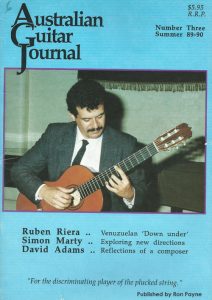
SOME TIPS ON HOW TO ACHIEVE YOUR LONG TERM MUSICAL GOALS
By Bruce Clarke
By now you are becoming aware that learning guitar and simultaneously developing an understanding of the music you wish to play upon it are two separate accumulative processes, and to achieve your long-term musical goals you must go some way towards mastering each one separately before combining them into one overall study plan.
Share this:
[feather_share]
If you analyze, dissect and digest that mountain of physical and intellectual problems until real understanding comes, then the full joy of music can be yours.
But, once you begin to climb that mountain of musical knowledge watch out, as you move upwards, growing further and deeper into the aesthetic aspects of music, changes will occur reshaping your relationship with the guitar itself. Your sphere of interest should shift more and more away from the instrument over to the ever-changing parade of musical ideas you would like to express upon it. If, and when this happens the guitar will assume a new, more realistic role in your life.
Most guitar owners remain total strangers to the inner secrets of music! Because they lack the time, inclination to work, or maybe even the ability to change their simple, enjoyable, but most times frustrating relationship with the sweet toned box into something deeper.
Many make the mistake of directing the main thrust of their interest towards the physical side of our craft rather than the true musical aspects. Obsessed by their digital dexterity they strive to become “Mr. /Ms Facile Fingers but somewhere along the way they neglect the one thing that could get it all happening for them: the study of the tonal and rhythmic principles that are the grammar of our musical language. The one thing that might eventually enable them to push something sensible through those silver strings.
VIRTUOSITY AS AN END IN ITSELF IS SIMPLY VAIN DISPLAY!
It is relatively easy to make the shift from guitar owner to guitar player but very few make the ultimate shift from guitar player to musician.
Most guitar players can:
- Cover the conventional chord shapes.
- Knock off a lead break of two.
- And through scale-running create an illusion of improvising.
Guitar players are able to develop a satisfactory relationship with their equipment but frustration rears its head whenever the musical water gets too deep.
Now let’s turn our attention to the musician. How can the “guitar player” make this final transition?
- By studying and accumulating knowledge.
- By working to understand and control that knowledge.
- By using that knowledge to gain control over the tonal nd rhythmic principles we manipulate and reshape to create meaningful music.
VIRTUOSITY IS ONLY COMMENDABLE WHEN PUT TO THE SERVICE OF MUSIC!
He must follow a rigid practice program that will:
- Strengthen his past
- Expand his present
- Prepare for his future.
Review – learn – apply (consolidate – replenish – project).
These are all good words to describe the routine.
The most important part of that practice program is consolidating your past achievements. And, consolidating your past achievements depends upon remembering what those past achievements were and understanding how they relate to your present and your future.
But everything in this growing process depends upon one thing -your memory! Without memory there is no accumulated knowledge! No understanding! No growth process!
Music like language is a form of communication and like language it must be internalized before it can properly work for you. If you do not own it there’s no way you can use it. Language itself would be meaningless without memory. If you could not remember words, their shape, their sound, their uses and meanings, what would you say? How would you say it?
If you did not have instant recall on everything you’ve experienced and learnt how would you evaluate and control the many situations and conversations you participate in each day? The sum total of these experiences plus your accumulated musical knowledge plus your ability to recall and use it all effectively is what you lay before us when you stand up to be judged as a musician.
A musician must be able to transmit and receive musical information with exactly the same facility and understanding he transmits and receives the spoken word. He must work towards recognizing and understanding his available sound materials and the techniques he must use to shape them into a personalized vocabulary, and a major breakthrough towards achieving this happens when he realizes that the instrument is of secondary importance.
The guitar should mean no more to a musician than a typewriter does to an author. The important thing is the ideas both these tools play a part in bringing to life!


